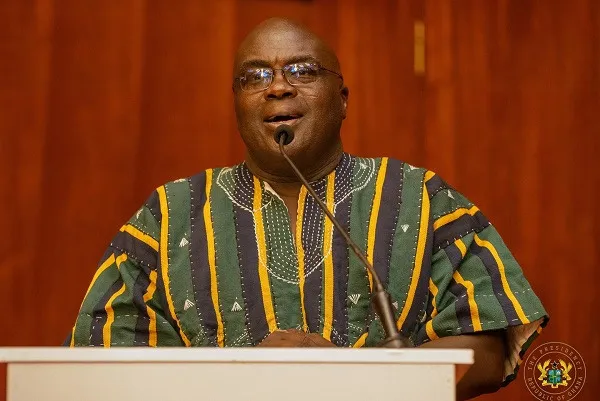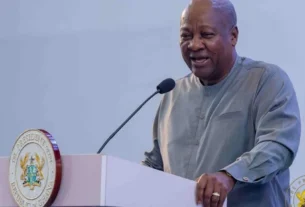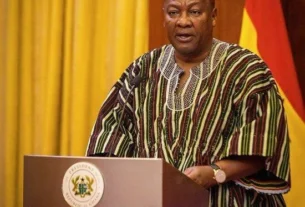Read also:
- Minority Slams Attorney General for Publicly Branding Accused Persons as Criminals
- Mohammed Kudus looks like Tottenham Hotspurs’ best signing- David Moyes
- NBA: We are going to miss him- Minnesota Timberwolves Coach on Anthony Edwards injury absence
- Minister Kofi Adams Urges Support for Black Queens Ahead of Egypt Clash
- University of Ghana Corporate Tennis Championship Delivers Thrilling Action
El Samuels, MBN360 News
The Chief of Staff, Julius Debrah, has reaffirmed the government’s commitment to building a resilient and inclusive health system, vowing to eliminate illegal health charges that continue to frustrate citizens under the National Health Insurance Scheme (NHIS). Representing Vice President Dr. Jane Naana Opoku-Agyemang at the stakeholder conference organized by the National Health Insurance Authority (NHIA) at Alisa Hotel, Mr. Debrah commended the NHIA and its Governing Board for spearheading strategic partnerships to strengthen Ghana’s health insurance system.
The government has increased the National Health Insurance levy, which will make available an extra 3.4 billion cedis into the fund this year to support claims payments and administrative functions. To date, ₵2.8 billion has already been disbursed to healthcare providers, restoring provider confidence and boosting public trust in the NHIS. This move has increased provider confidence, encouraged compliance, and driven enrollment growth.
However, Mr. Debrah condemned the persistent imposition of unauthorized or illegal charges by some healthcare facilities, warning that the government will not tolerate the practice. “These illegal charges, often demanded at the point of need, undermine the very purpose of the scheme,” he emphasized. The government is committed to eliminating these charges and has expressed support for the NHIA’s zero-tolerance campaign and the formation of a national task force to investigate and end the practice.
The NHIA’s digitization efforts, including the introduction of biometric membership authentication at healthcare facilities, reflect the government’s commitment to accountability, efficiency, and operational effectiveness. Mr. Debrah praised these efforts, highlighting their potential to improve the overall quality of healthcare services.
Furthermore, the government will soon roll out two major initiatives—the Ghana Medicard and the Primary Care Program—to strengthen disease prevention, early detection, and timely treatment. These programs aim to reduce out-of-pocket spending and improve healthcare outcomes. Mr. Debrah also called for intensified public education on the benefits of the NHIS to help eliminate misconceptions and boost enrollment. “Let us galvanize our efforts into communities, schools, churches, bus stations, markets, and public parks to educate Ghanaians about the scheme’s benefits,” he urged. “Public awareness is our best defense against exploitation.”
The government’s commitment to achieving Universal Health Coverage (UHC) by 2030 is anchored on innovation, inclusiveness, and financial protection for all citizens. Mr. Debrah’s remarks reinforce the administration’s pledge to build a resilient and inclusive health system that provides financial protection for all citizens.




